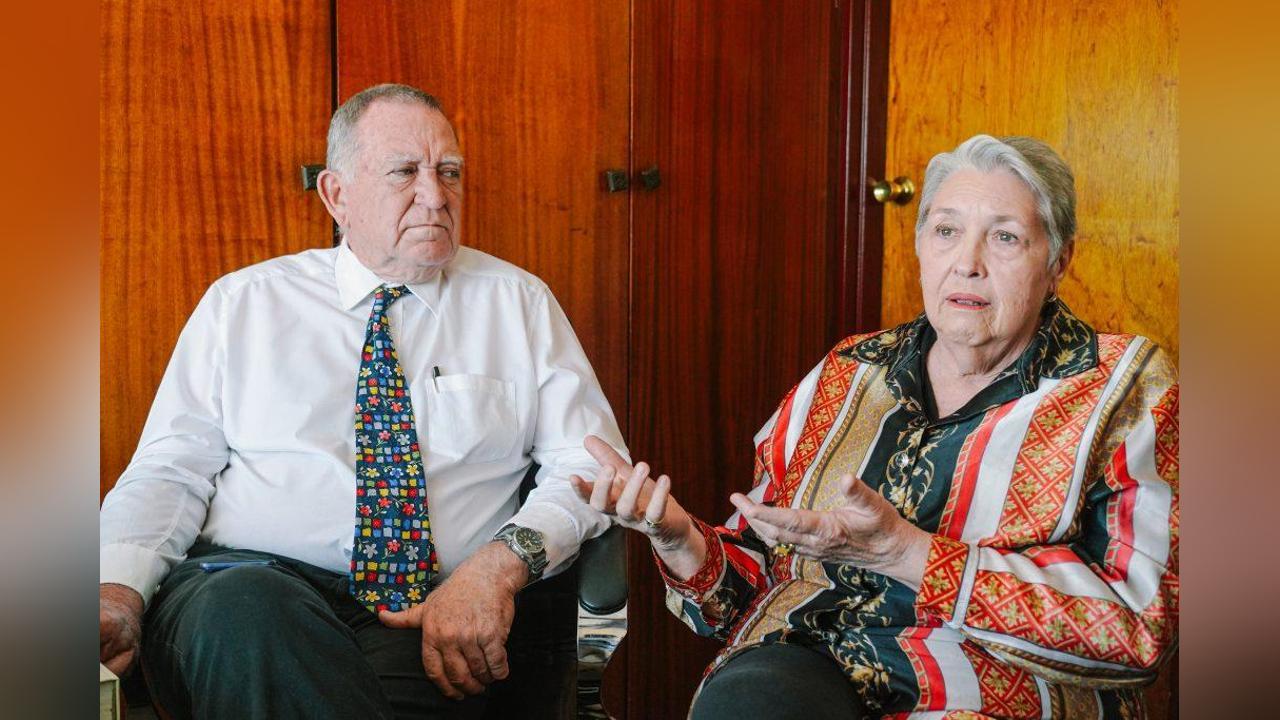Africa-Press – Lesotho. Growing up in Ha-Rachabeli village, Molefi Tutubala, 31, had what he calls a very difficult upbringing. For a start, Tutubala’s own mother did not speak his language.
That was a big problem given the centrality of a mother in language acquisition and socialisation. His mother, who is now late, would often speak to Tutubala in Sesotho, a language that was foreign to him.
And when he “spoke” in his own sign language, his mother would not understand him either. The result was constant conflict and frustrations born out of two dichotomous views of what constitutes language and its role in oiling social harmony.
What worsened the situation, apparently, was an erroneous conclusion by Tutubala’s father that his son was a stubborn boy who could only be straightened up with a thorough beating.
That led to a string of vicious beatings on the young Molefi for reasons that he says he never understood. His father would therefore deliver regular beatings after he concluded that his son was stubborn.
His father is late. Tutubala says he felt that he was treated like an outcast. None of his family members knew sign language. They were simply overwhelmed as they battled to deal with the “curse” of dealing with a deaf child.
“I became sad and broken-hearted,” Tutubala says. When it was time for most children to start school when they were around six-years old, Tutubala did not join them.
He stayed at home for a further five years only enrolling for Grade One when he was 11. But it was not just his family that did not know how to deal with his special circumstances.
Even the school system appeared hopelessly inept in dealing with his “disability”. The school had no special class for the deaf which saw all the deaf students being lumped in one class with hearing students.
Because they thought he was hard of hearing, the teachers resorted to shouting louder during lessons. It was a clumsy teaching method that only resulted in more frustrations for Tutubala and his teachers who had not received any special skills on how they could teach deaf students.
“I didn’t know what was going on during class. I learnt nothing during class.
I would just stare at the teacher, there was nothing there, not even lip reading,” he says. “I felt very depressed. There were so many problems there and I couldn’t communicate how I felt.
I eventually left and went to St Paul’s,” he says. St Paul’s School for the Deaf in Leribe is one of only two schools in Lesotho that caters for the handicapped.
The other school is Kananelo School for the Deaf in Berea district. Ntšoeu Ralefu, 27, is also deaf. Although he came from a big family of seven children, neither of his siblings nor parents knew how to sign.
“There were constant fights,” he says.
“When there was a problem, I would often be blamed for it because I could not defend myself.
“Sometimes I would be beaten because they said I was naughty. I had no real friends growing up. ” It was a hostile environment that he says left him feeling frustrated and angry.
Angry at his family and angry at a society that he felt did not put enough effort to understand him. Ralefu, who grew up in Ha-Semethe, enrolled at St Paul’s in 2004 when he was eight.
He was to soon meet the same frustrations that his deaf colleagues have had to endure over the years. “My teachers did not speak my language. The hearing and the deaf were all mixed in the same class.
I just had to teach myself and learn from what other students were being taught,” he says. In a class for the disabled, Ralefu was the only one who was deaf.
Yet despite the challenges, Ralefu’s story is one of a few that has had a very happy ending. He eventually moved to Mount Royal Primary School where he did his Grade 4 to 7 before enrolling for high school.
He completed Form E at Mount Royal High School. Although Ralefu had some sign language education at St Paul’s he had none of that special education at Mount Royal.
Ralefu is now working at Johnsons Workwear, a textile company in Maputsoe. Gary Meyer and his wife, Praline, are a Jehovah’s Witnesses couple who have been working with the deaf community in South Africa and Lesotho for the past 30 years.
On one of their trips deep in the rural areas of Lesotho, they met a young man in his early 20s who was deaf. “When we started talking to him in sign language and showed him the videos about the Bible, he broke down and started crying,” she says.
“We were speaking in a language that he could understand and secondly we were giving him a message of hope about the future. That must have really touched his heart. ”
The Meyers told thepost this week that this is a familiar experience as they preach about God and the Bible in the deaf community. Jehovah’s Witnesses currently produce material for the deaf in 105 languages, including South African Sign Language which is also used in Lesotho.
They have also translated the Books of the Bible from Matthew to Revelation in sign language, a huge feat as the materials have to be in video format for visual effect.
Every Sunday, the two interpret public meetings into sign language at the local Kingdom Hall of Jehovah’s Witnesses in Upper Thamae in Maseru, filling a huge spiritual void for the deaf.
An average of five deaf people attend these meetings every weekend. Gary Meyer told thepost this week that they are passionate about delivering a message of hope “to everybody regardless of their language, race or background”.
“There is a huge need in the deaf community. I was prepared to make a sacrifice in an effort to learn the language,” he says.
And over the years the Meyers have immersed themselves in the “deaf culture” and have come to love the people who they say have similar aspirations just like everyone else.
“They would like to have a family like everyone else.
They would like to be understood so that they can communicate effectively with everyone else. “The deaf are not stupid. They are just as intelligent as anyone else.
There is nothing mentally wrong with them,” Praline says. Praline learnt sign language in the early 1990s after she met one woman at the Kingdom Hall of Jehovah’s Witnesses who had a daughter who was deaf.
To speak to her, she knew she had to learn her language and so she enrolled at Wits University to study sign language. “I realised that writing whatever was happening was a total waste of time.
I had to learn her language by going to a school for the deaf. ” Praline did a year’s diploma course at Wits University to learn how to interpret into sign language.
“The only way you learn sign language is by communicating with the deaf.
It’s like any other language. You have to socialise with the people to learn it. You have to learn its grammar. ” “Once you become involved with sign language, it pulls you in.
I don’t know how best to explain it. It is something that really touched our hearts and we keep going back to help the deaf,” she says. It is a rare language skill that they have been using to spread the Word of God.
What has made them succeed in their ministry is the realisation that the deaf rarely meet people who speak their language in their communities. “When you as a stranger meet them and you know their language, they are immediately drawn to you.
They want to know where did you learn sign language and why. “And when you tell them you have a message of hope from the Bible and you show them publications in their language, they are amazed,” she says.
Praline says while they acknowledge that not everyone is going to learn sign language, they would appreciate it very much if people could learn a few signs “to be able to communicate so that they too feel like part of the community”.
“Right now, they feel marginalised; they feel left out in the corner and that is why I enjoy doing the work I do.
I can help them to see that there is a better future for them. ” The Meyers say they are aware of the huge challenges faced by the deaf in their communities.
“They speak a language that no one else knows. That is their biggest challenge,” Gary says.
“A deaf person might grow up and have no idea of the Basotho culture and only when they go to school and interact with other deaf people do they learn the deaf culture,” he says.
He says in most cases the deaf have to deal with issues of stigma and neglect from their own families as well as the state. “More often than not, the teachers in schools have no formal sign language qualifications to teach in sign language. They are just there, doing what they know. There are also no dedicated deaf schools, the deaf are put together with the disabled,” he says.
Source:The Post
For More News And Analysis About Lesotho Follow Africa-Press






